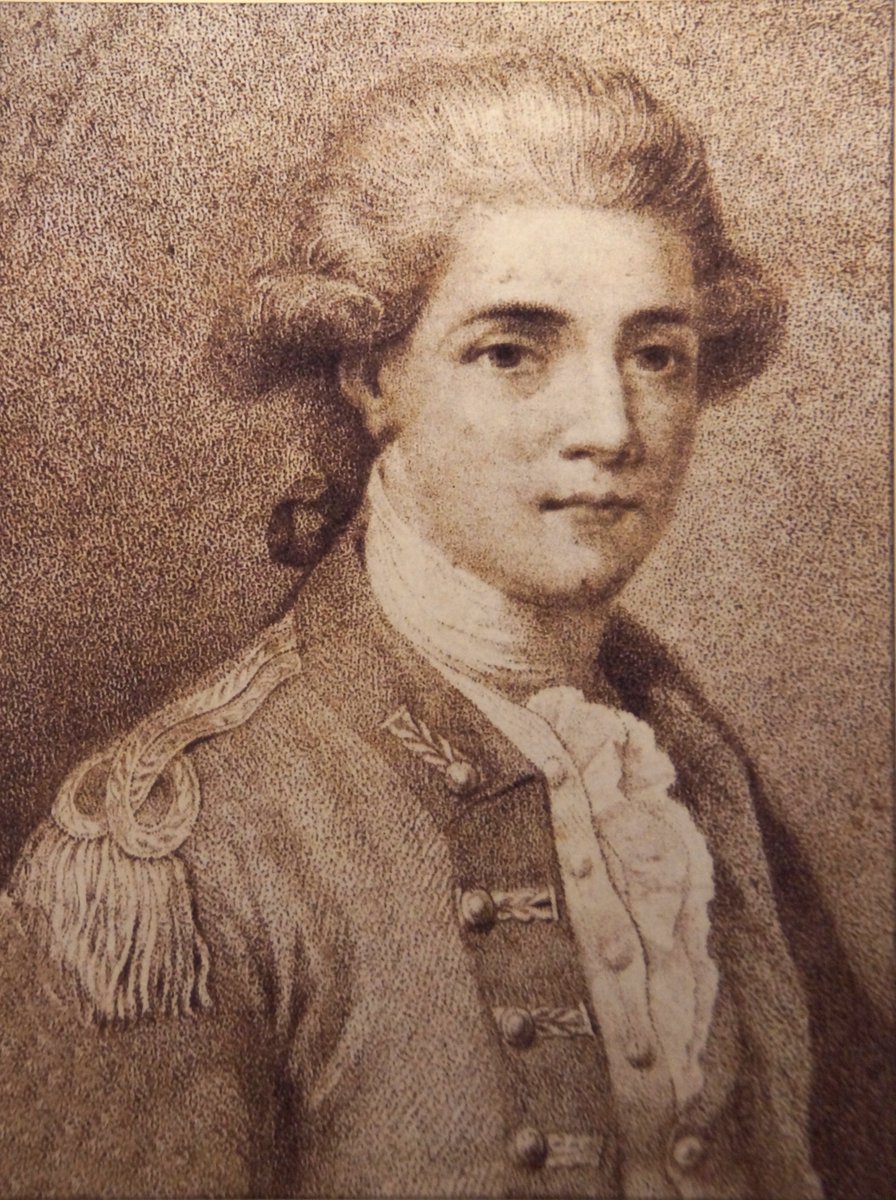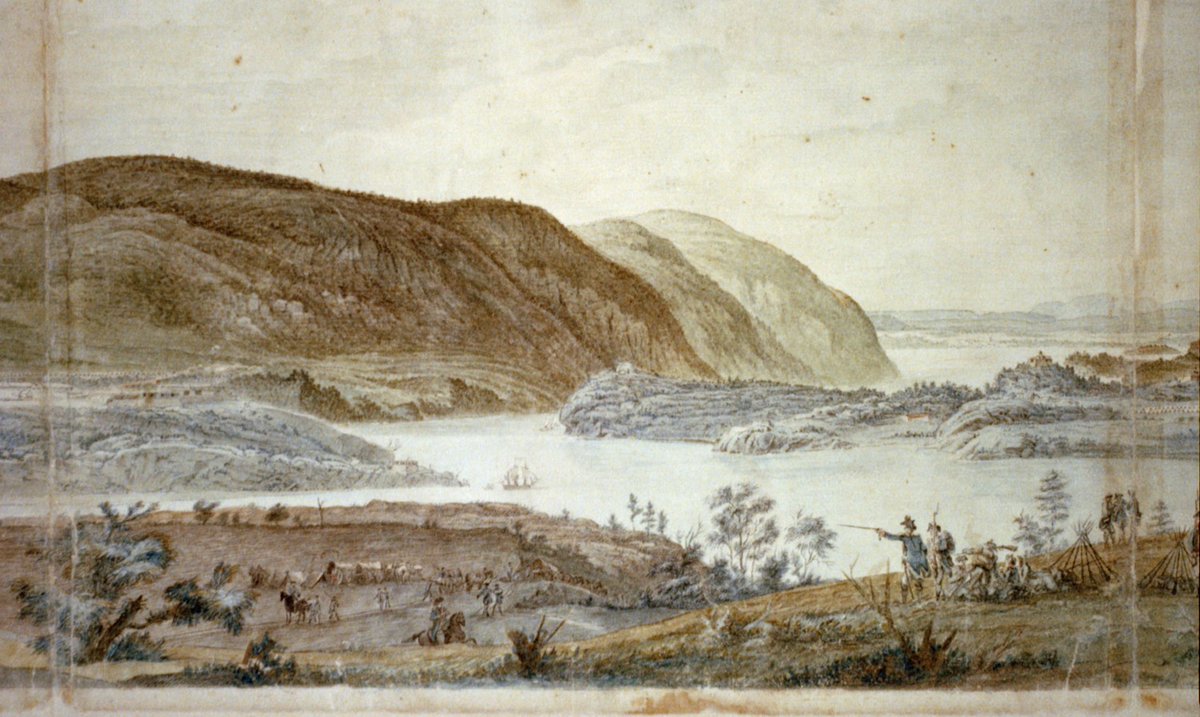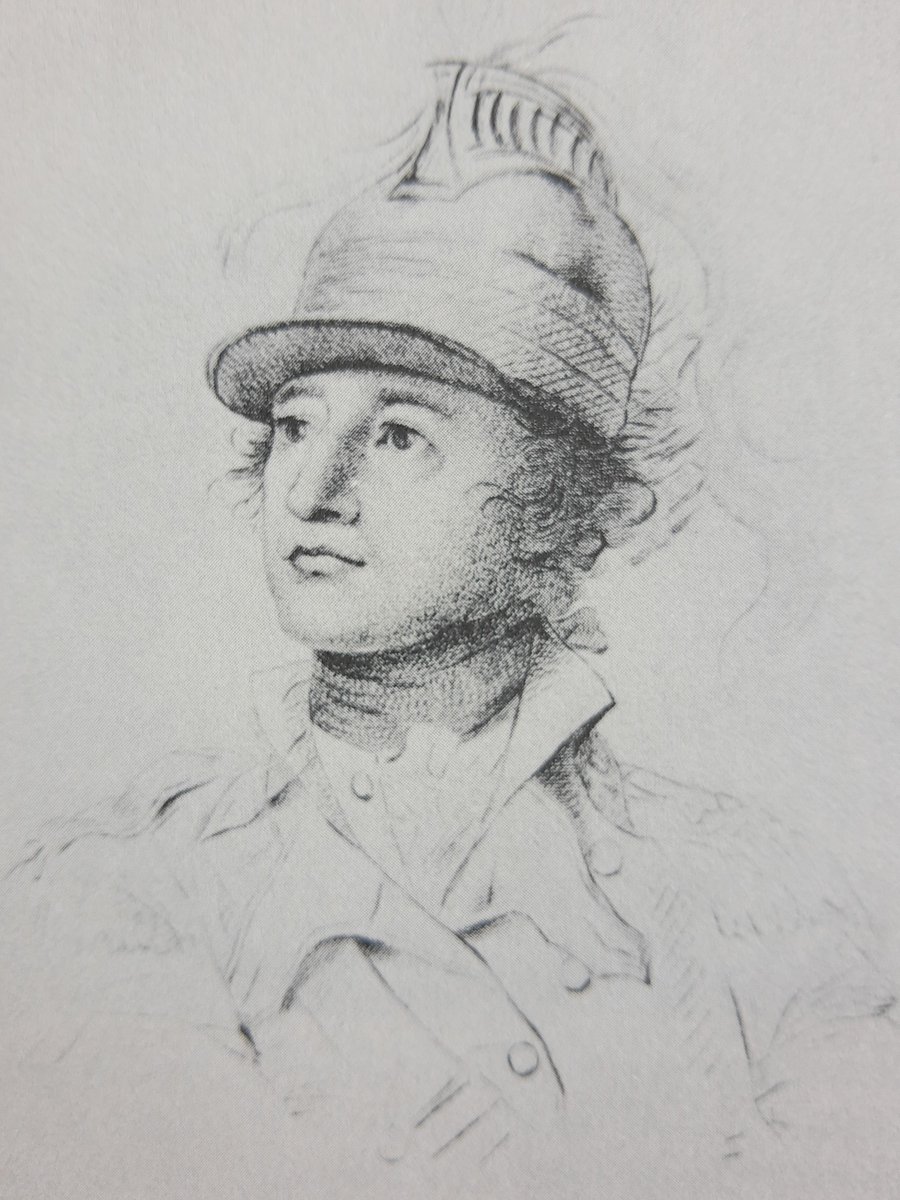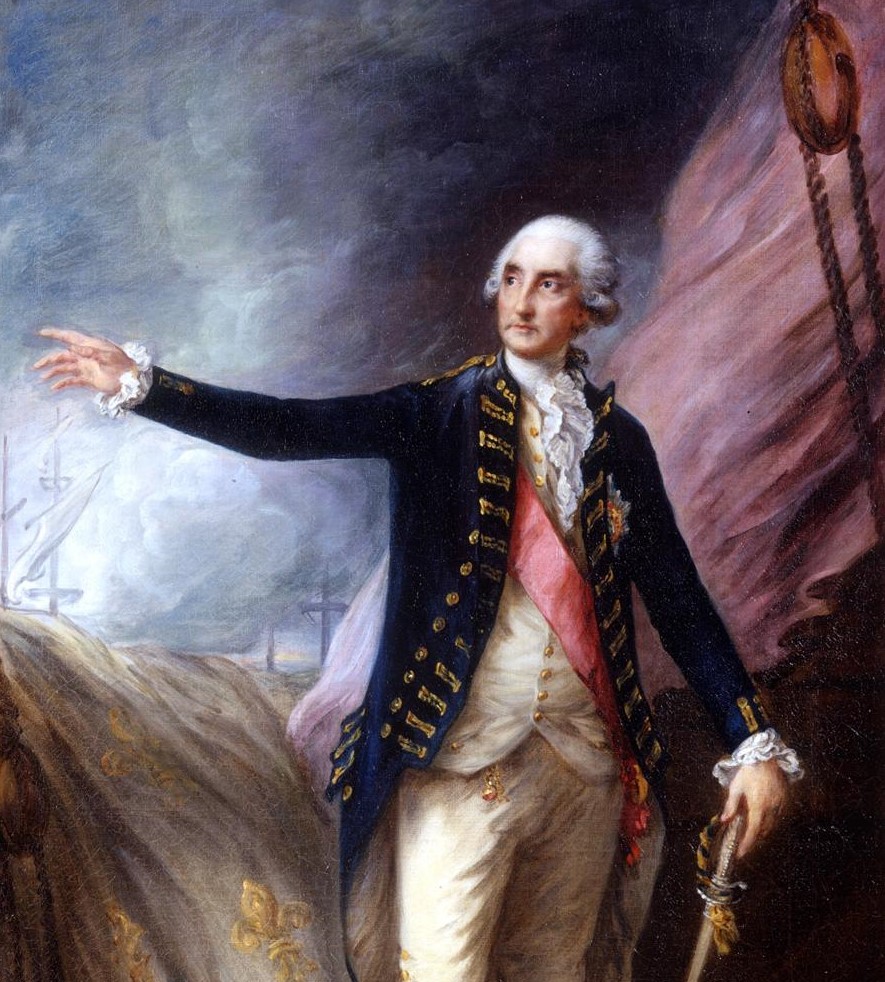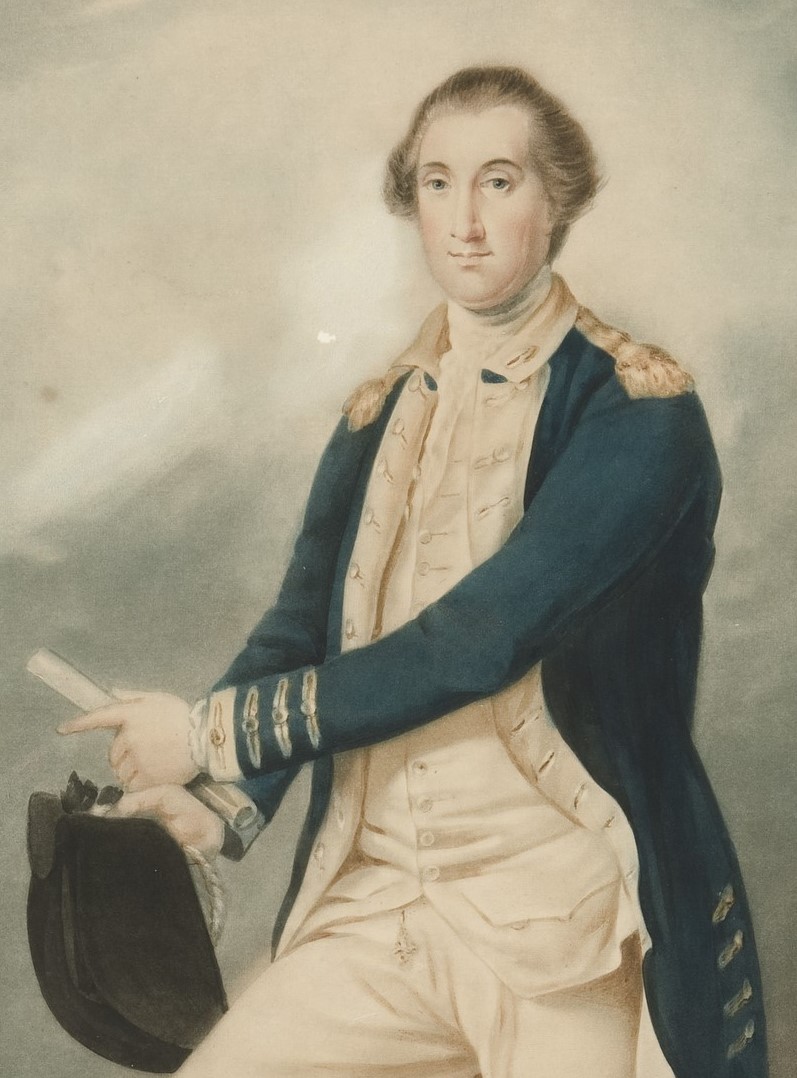#OTD in 1780, #AmericanRevolutionaryWar Gen Benedict Arnold (code-name ‘Gustavus’) wrote accepting British terms to betray West Point. For secrecy, his letter read like a business proposal. Arnold hoped to fix an interview with ‘John Anderson’ (Maj John André) within 10 days.
Arnold entrusted his message to William Heron, who& #39;d a pass to enter British-held New York to collect a debt. Unknown to Arnold, Heron was a double-agent. In NYC, he gave intelligence to the Brits, but to maintain cover with the Patriots, passed the letter to Gen Samuel Parsons.
Heron was oblivious of the note’s significance. Assuming it only concerned commerce, Parsons failed to immediately forward it to his c-in-c, Gen George Washington. So, while Arnold’s attempt to contact André had gone awry, his plan to deliver up West Point remained undetected.
#OTD 240 years ago (4 Sept 1780), after his latest bid to get a message to British contact Maj John André re. surrendering West Point was thwarted, turncoat Gen Benedict Arnold tried again. This new letter was given to Mary McCarthy, wife of redcoat POW, private Charles McCarthy.
Covered by Arnold’s pass to go down the Hudson to New York, and escorted by American troops, Mrs McCarthy delivered the note to Gen James Robertson at British HQ. It was forwarded to André, who now knew that Arnold hoped to meet him soon to refine the plan to capture West Point.
As ‘John Anderson’, André sent a response to Arnold’s outpost commander, Col Elisha Sheldon, requesting permission to meet his friend ‘Mr G[ustavus]’ at Dobbs Ferry, in neutral territory on the Hudson, at noon on 11 September. Sheldon was puzzled by this, but notified Arnold.
Alarmed that André’s indiscretion might stir Col Sheldon’s suspicions, Arnold replied that the John Anderson who’d approached him could be an imposter. He also wrote to André, urging ‘stealth’. Yet he resolved to travel downriver on the 11th, hoping that the Major would meet him.
OTD 240 years ago (11 Sept 1780) Gen Benedict Arnold went to Dobbs Ferry on the Hudson to rendezvous with British intelligence contacts Maj John André & Col Beverly Robinson, a loyalist and former friend of Washington, whose old home, near West Point, was now Arnold’s HQ.
But for security reasons, British gunboats patrolling the river hadn’t been alerted to the covert meeting. They fired on Arnold’s craft, forcing him to abort his mission. He was lucky to escape with his life. For the plot to progress, it would be necessary to fix another meeting.
Arnold wrote to his outpost commander at North Castle, Maj. Benjamin Tallmadge, asking him to escort ‘John Anderson’ (André) to HQ should he appear. Arnold was unaware that Tallmadge was one of Washington’s intelligence officers, handling the ‘Culper Spy Ring’ around New York.
Admiring Arnold as a war hero, Tallmadge had no inkling that he’d turned traitor. He replied saying he’d be only too happy to bring ‘Anderson’ to him in person. Arnold also notified Col. John Jameson, who’d replaced Col. Sheldon at Lower Salem, to keep a look out for ‘Anderson’.
#OTD in 1780, the sudden arrival of Adm. George Rodney’s fleet at New York gave the British naval superiority over Washington’s French allies. With no danger of a Franco-American attack on NYC, Sir Henry Clinton now focused on capturing West Point - with help from Benedict Arnold
Rodney’s arrival was perfect timing because Clinton had already assembled a task force of c. 3000 men for an expedition to Virginia. Everyone – including Washington’s spies – assumed they’d sail for the south. Instead, Clinton now aimed to send them upriver against West Point.
Establishing face-to-face contact with Arnold was now more urgent than ever. Clinton needed to finalize details of the operation, and to be sure that the celebrated #AmRev general really was prepared to betray his former comrades - and wasn’t luring him into some elaborate snare.
On 15 September 1780, Gen. Benedict Arnold wrote to British contact Maj. John André telling him that he could approach his outposts safely under the alias ‘John Anderson’. Or if André came up the Hudson, someone would meet him at Dobbs Ferry between 11. pm & midnight on 20 Sept.
That go-between was Joshua Hett Smith, a local lawyer with loyalist connections. It’s likely that Smith was unaware of Arnold’s true intention to betray West Point, and assumed that the meeting with ‘Anderson’ was to discuss a business proposition, or perhaps peace negotiations.
Later that day, Arnold received a note from Gen. George Washington. He would be at Peekskill on the evening of Sunday 17 Sept, on his way to confer with the French high command at Hartford, Conn. Requesting forage for about 40 horses, GW urged Arnold to keep his journey a secret.
At once, Arnold dashed off another message for André, alerting him to this intelligence. As Washington’s escort was so small, here was a golden opportunity for the British to intercept and capture the Patriot’s Commander-in-Chief, perhaps as he crossed the Hudson at King’s Ferry.

 Read on Twitter
Read on Twitter